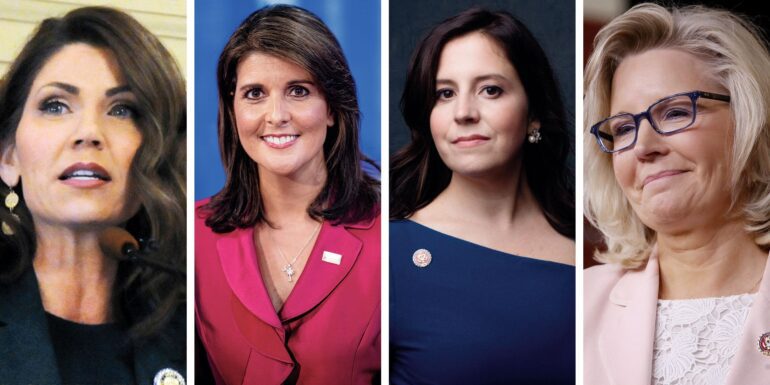TL;DR:
- Danish AI study finds conservative female politicians appear happier and more attractive in photos compared to their liberal counterparts.
- AI can predict a person’s political ideology with 61% accuracy based on a single headshot.
- Conservative women receive high attractiveness scores according to the AI model.
- Left-leaning male politicians display more neutral and less happy expressions in photos.
- Expressing happiness is associated with conservatism for both genders.
- Deep learning approaches using publicly available data raise concerns about privacy.
- AI-generated deepfake content and generative AI disrupt industries and jobs.
Main AI News:
A groundbreaking study conducted in Denmark has shed light on the fascinating relationship between political ideology and attractiveness, particularly among female politicians. The research, powered by artificial intelligence (AI) and published in the prestigious Scientific Reports, a journal owned by Nature, unveils intriguing findings regarding the visual representation of conservative and liberal politicos.
Utilizing Microsoft Azure’s Face API tool, the scientists employed advanced AI algorithms to analyze over 3,200 publicly submitted headshots of political candidates who participated in the 2017 Danish municipal election. Their objective was to determine whether a person’s political ideology could be predicted accurately solely based on a single photograph.
The AI analysis revealed that political ideology can be discerned with an impressive 61% accuracy. Remarkably, the study found that conservative female politicians tended to exhibit a higher degree of happiness and attractiveness compared to their liberal counterparts. This connection between attractiveness and conservatism aligns with previous research conducted by human raters, further validating the results.
The research team discovered that 80% of the faces examined displayed a discernible expression of happiness, while 19% were characterized as neutral. Notably, among the female candidates, those identified by the AI model as likely to be conservative scored notably higher on the attractiveness scale. This correlation between attractiveness and conservatism offers a compelling insight into the complex dynamics of political ideology and physical appearance.
Furthermore, the study revealed that men’s photographs provided even greater accuracy, with a remarkable 65% predictability rate. This was achieved after the researchers stripped the images of any visual elements other than the subjects’ faces, such as shirt collars. Left-leaning male politicians were found to exhibit more neutral and less happy expressions compared to their conservative counterparts.
While attractiveness played a significant role in the model’s prediction of ideology, the scientists noted that happiness also served as a crucial factor associated with conservatism for both genders. Previous studies have established a link between smiling in photographs and extraversion, and although extraversion is not universally associated with political ideology, some research indicates that right-wing politicians tend to exhibit higher levels of extraversion.
As intriguing as these findings are, they also raise concerns regarding privacy in the era of deep learning approaches. The use of publicly available data to develop AI models can potentially threaten individuals’ privacy. The study highlights the need for careful consideration and safeguards when deploying AI technologies that rely on personal data.
This isn’t the first instance where AI has prompted warnings. In a separate incident, Facebook removed AI-generated deepfake sexual social media advertisements that exploited the likenesses of prominent actresses Scarlett Johansson and Emma Watson. Additionally, a recent report has indicated that generative AI has the potential to disrupt job markets traditionally occupied by higher-wage knowledge workers, leading to significant changes in the workforce landscape.
Conclusion:
The AI study’s findings suggest a visual connection between attractiveness, happiness, and political ideology, particularly for conservative female politicians. This insight can have implications for the market by shaping public perception and influencing attractiveness-driven factors in political campaigns. However, the study also highlights the need for privacy safeguards in the use of deep learning approaches. Additionally, the disruptive potential of AI-generated content and automation calls for adaptation and upskilling in industries traditionally held by higher-wage knowledge workers.

